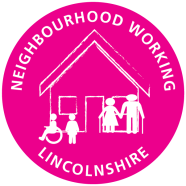 10 principles and common language using best practice tools
10 principles and common language using best practice tools
Click on the sections below to view more information.
By having a person-centred care approach it gives people more choice and control in their lives by providing an approach that is appropriate to the individual's needs. It involves a conversation shift from asking 'what's the matter with you' to 'what matters to you'. Joining health and community (i.e social prescribing)
Proactive care and escalation planning. A common theme in Skegness and Coastal neighbourhood is people not recognised early enough and who require supportive palliative care.
Understanding the degree of frailty, mild, moderate or severe and the 6 frailty syndromes enables people to follow the correct proportionate response to their needs. The 6 frailty syndromes are as follows: Dementia/delirium, Incontinence, Falls, Immobility, Poly-pharmacy and End of life.
Phase of Illness provides a clinical indication of the patient's current stage of illness and the level of care required. The result from this measure is easy to interpret and it can help ensure that the care plan is modified to incorporate the needs of the patient and family at any given time. (OACC, Kings College, 2020). Provides the opportunity for planning conversations.
To support proactive, anticipatory and advance care planning there are an agreed set of validated, evidence based assessment tools to help identify the degree of need. They are as follows: Edmonton, Prisma, SPICT/SPICT4ALL, ReSPECT, RNT, CGA, EPaCCS, Message in a bottle and Carers assessment.
Tackle problematic polypharmacy, reduce hospital re-admissions, waste and demand on GPs. Identify, prioritise, coordinate, track, and record medicines optimisation opportunities.
Hoarding is the persistent difficulty discarding or parting with possessions, regardless of their actual value. The behaviour usually is emotional harmful, physical, social, financial, and even legal—for a hoarder and family members. The full extent of hoarding with the Coastal PCN is not fully understood however numbers are reported to be high. Prioritising assessments and identifying people who are hoarding can enable proactively planning and prevent harm.
Neighbourhood working will promote safety and wellbeing and where people are experiencing or at risk of harm we rigourously apply Lincolnshire’s multi agency safeguarding adults procedure, understanding what is important to the person to protect them from harm.
We will always adopt a whole family approach and ensure that all informal carers have received a Carers Assessment as required under the Care Act and work with the local authority and their commissioned carers support services to ensure support is available to help sustain informal care arrangements. We will also promote the use and knowledge of Carers Emergency Response Service (CERS) plans to trigger the best emergency interventions when care arrangements break down.
Mutual respect of services working together as equal partners. Care plan, escalation/advance care plan, message in a bottle, Respect and EPaCC’s if appropriate, Carers support/CERS, Hoarding assessment, Key worker identified.


